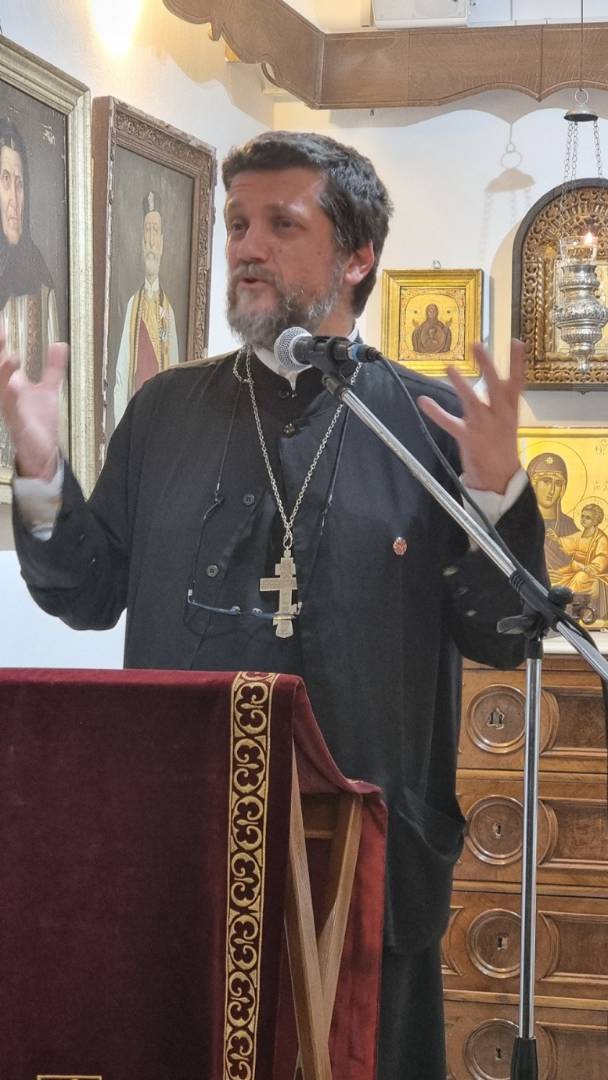
FR. GOJKO PEROVIĆ: RELIGION IN ALL CIVILIZATIONS IS RETURNING TO THE GREAT DOORS, AND IN MONTENEGRO WE ARE WITNESSES AND PARTICIPANTS OF THAT
As part of the series of lectures during the Easter fast in the Treasury of the Serbian Orthodox Church in Kotor, archpriest Stavrophor Gojko Perović, archpriest vicar of Podgorica-Kolašinj, spoke yesterday.
When asked if we live today in a godless world in which the loudest "confirmations" of this background come to us through the media, but also in numerous other ways, Fr. Gojko points out that as Christians, of course, we cannot agree with that, nor can we be satisfied.
"We live, as they say, in a godless world, and this is mostly related to something we call the secular world of the West. The secular world of the West is that world that simply does not want to have anything to do with the Church, with rituals, with priests, with the name of God. In our country, this is further reinforced by the legacy of the one-party communist system, although we can have some sentiment for that time when, due to circumstances, life was better economically, especially for people who gave their lives for an idea, but did not expected to see a lot of good from it," says Fr. Gojko, recalling that the one-party system, which was introduced by force, quickly showed its true intentions, and the words of one of the "pioneer" songs of that era "I wear a hat with three horns and fight against God" are perhaps the most vivid example that speaks of this time.
The question, as the lecturer says, is how we got into this situation in the first place.
"Something called the New Age is a period in history that follows the Middle Ages. It is characterized by humanism, enlightenment, rationalism and blind faith that the natural sciences will provide happiness and progress to this world. On the other hand, the identity of us Christians is generally not tied to a steam engine, to a flying saucer and to three-phase, two-phase electricity... However, there are Christians who engage in science and I will try to touch on the topic that Christianity and science do not conflict.
We, who woke up in the 90s and who remember our ancestors and see Christian monuments as a remnant of a bygone era, those historical rivers from 2000 BC, when we locate our ancestor Abraham, to 1500 AD, when the Middle Ages are generally considered to have ended (the time of the fall of Constantinople, the discovery of America, the discovery of the printing press), are in this world as foreigners, some exiles, who have to prove that we are not crazy because of this that we believe in God, that we are not a lower race of people because we respect tradition. Somehow most Christians feel the need to justify themselves.
And it's pouring. Sometimes I wonder if it was really us. "Litije is a sinkhole river that sank somewhere in the Middle Ages, so it's as if it's not there and as if it erupted in 2020 like some kind of hot spring, like Sopot near Risno," says Father Gojko.
He reminds that everything is always somehow specific in Montenegro, even for Bishop Petrović.
"It cannot be said here that everything ended in the Middle Ages. In Montenegro, the modern institutions of education, the state, and the judiciary were established by the Church. Again, this is something specific, unlike most European countries where (through the 17th and 18th centuries) the influence of the Church weakened through the Reformation and later through the Counter-Reformation, etc. In our country, until the end of the 19th century, the Church was the main institution (the Code of Prince Danilo, the institutions of King Nikola, his adoption of all big decisions on big church holidays, care for the Church as the main teacher, educator of Montenegrin society in all positive legal regulations)", says Fr. Gojko.
He believes that what culminated during the 18th century in Europe, and continued during the 19th and 20th in Europe and America and dominated until yesterday as a general place, atheism, agnosticism, relativization of tradition (formula-grandfather was crazy and illiterate, I am better than him), the history of humanity does not remember.
"History does not remember what kind of break it was with the Church and with the tradition related to God in the last 200 years. Nevertheless, my thesis, based on everything I have read, is that the intensity of impiety during this era is unprecedented, but again, the attachment to God, people, humanity and His, sometimes hiding, sometimes revealing to people, alternate from Adam to this day. They strike like that tongue on a church bell. Sometimes in one direction, sometimes in the other. We are leaving from an ungodly time, and when you look at human history, God sometimes reveals himself, sometimes as if He never existed.
I base that on one very exact piece of data. The epoch of ungodliness lasted 200 or 300 years until yesterday. It is an era of various modernities, revolutions, atheisms... But it followed a thousand years of the Middle Ages (an age of general piety, without revolutions, without disgust at the Church, with people we celebrate in the church calendar of St. Nicholas, St. Basil the Great, St. John Chrysostom, Gregory Palamas, John Damascene, St. Sava, all of Nemanjić). After that epoch, we again, this epoch of impiety, see the end today. These are serious scientific theses of sociologists, philosophers... It is no longer a matter of whether the world is secularizing, but of desecularization and that religion is returning to the big doors in all civilizations. Both with Muslims and with Protestants and with Buddhists and with Christians, and we in Montenegro are witnesses and participants of this. After all, who could have thought, let him say, without lying, that the American secretary would go on TV and say "we believe in the person of Jesus Christ, His divine and human nature", says Fr. Gojko.
God, he continues, "deliberately hides himself in order to attract you, to seek him, to see if he needs you."
"Human history does not know of a society or epoch in which there was no religion, until the French Revolution (1789) and a little before it. Ideological and media impiety remained powerless in the face of the fact that the greatest minds, even of the New Age (Kant, Hegel, Descartes, Newton, Copernicus, Einstein, Jung Pupin, Tesla, Njegoš, Amfilohije, Vladeta Jerotić) were deeply believing people. This easily proves that religion and science not that they are not in conflict, but quite the opposite," he said about Gojko, recommending Njegoš's poem "Montenegro to the Almighty God" as mandatory reading for Easter Lent, which, he believes, no psalm of David is equal to, and wherever the great poet looks, "at a small worm or at a big elephant", he sees God's finger and God's hand everywhere.
He emphasizes that we must fight for faith every day.
"And that's good in this post. The fact that you fasted last year, that you received communion this Christmas, that you celebrate glory, it's all good. Let's see where you are now, where you are this morning, because the world is changing so quickly. Inside me, everything is changing so quickly, that every day I have to be in some way "reported" before the Lord and say every day "I believe in one God, the Father, the Almighty, the Creator of heaven and earth and of everything visible and invisible". Every time the same, as you do everything else every day. So when you do all that, and someone gave it all to you, is it boring to say thank you to Him every day?
Among other thinkers, who were quoted in yesterday's lecture by Fr. Gojko, we mention the philosopher Hans Jonas, who in his famous work "Principles of responsibility - an attempt at ethics for a technological civilization" says "I guess there will be people after us, we have to leave something for them".
"A miracle happened from the invention of the telescope, the microscope to the atomic bomb (vaccine against the plague, cholera). It really seemed that the human mind would conquer everything, to rule the world. And what do we have today? You look through the telescope, the report of the most serious astronomers says that the universe is expanding. How? By withdrawing into itself. Well, if it was a poet, like Branko Miljković, I would say a fine poem. So, looking through a telescope or looking through a microscope, nothing more about the world you don't know from Njegoš, nor did he know anything more about the world than St. Sava, and if we really want to say something about life, we will have to mention that pre-Christian martyr who said: "I know that I know nothing." And because things are like this with science, with politics, with the economy, with ecology, where the wisest heads warn and say "alam people stop", that's why people are returning to religion", Father Gojko said, among other things.
He ended with the words of one of today's leading sociologists and philosophers, Peter Berger: "The religious impulse, the search for meaning, which transcends, which goes beyond the limited space of empirical existence in this world, is an unchanging constant of human existence. Both atheists and agnostics will agree on this. Human existence devoid of transcendence, devoid of the higher, which we can see, represents an impoverished and unsustainable state."
PHOTOS
RELATED ARTICLES
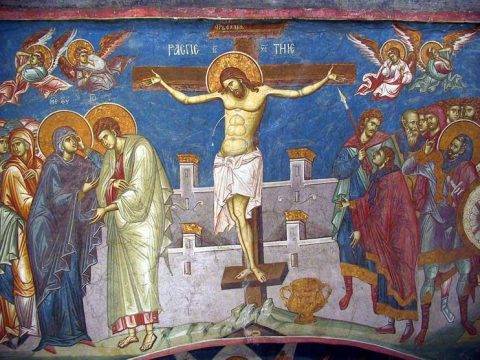
Calendar for April 18 GOOD FRIDAY – THE CRUCIFIXION OF CHRIST
CrucifixionOn the night between Maundy Thursday and Good Friday, Christ was...
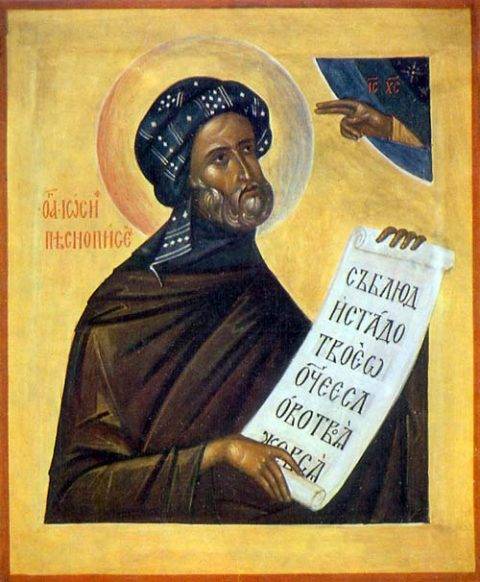
Calendar for April 17 Venerable Joseph the Hymnographer – Maundy Thursday (Great Vigil)
Born in Sicily, to pious and virtuous parents, Plotinus and Agathia. After the...
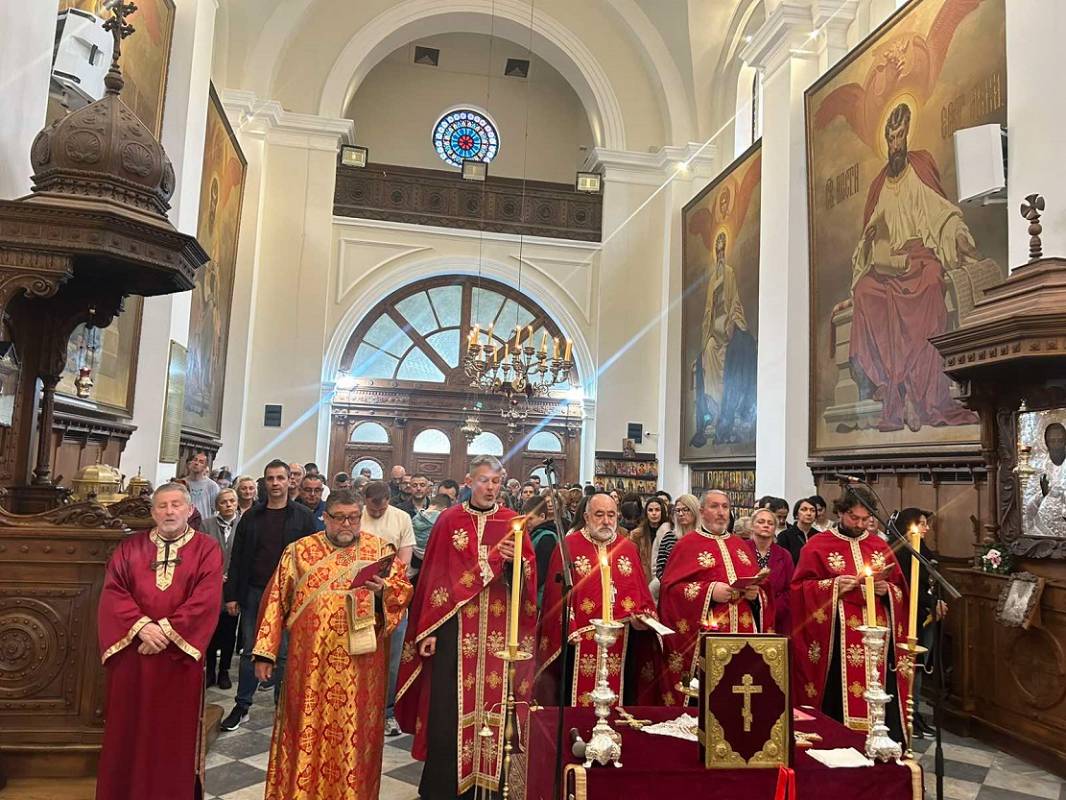
HOLY WEDNESDAY - THE HOLY MYSTERY OF ANOINTING WAS CELEBRATED IN THE CHURCH OF ST....
Today, on Holy Wednesday, the "Holy Mystery of the Blessing of the Oil" was...


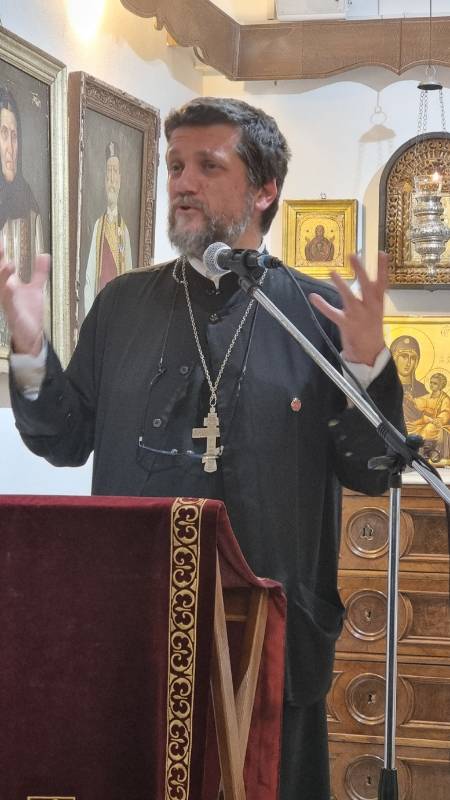

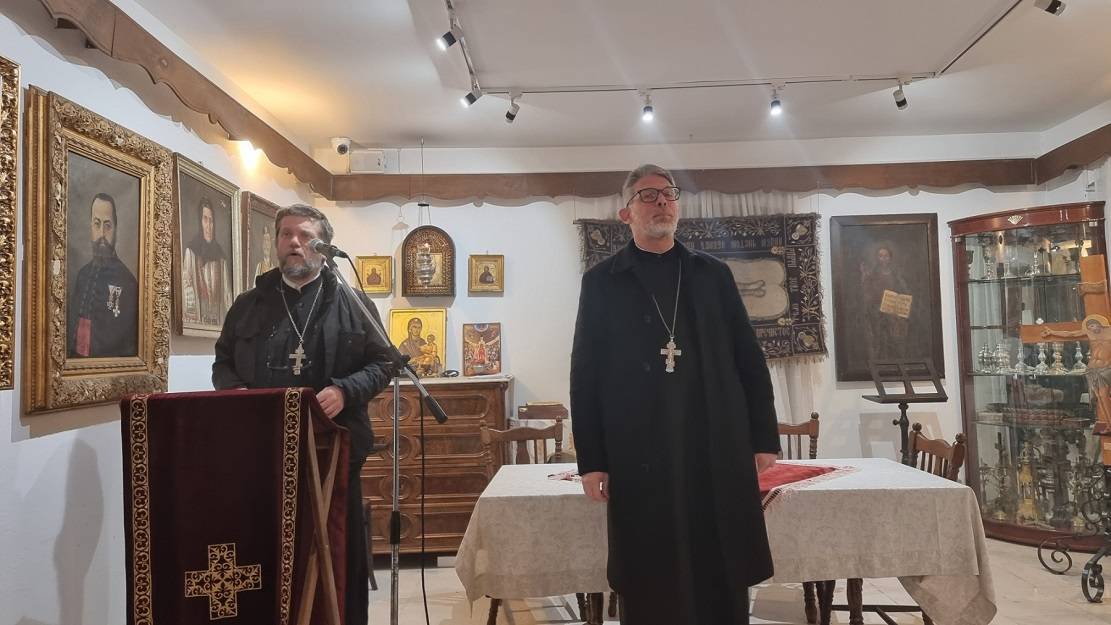
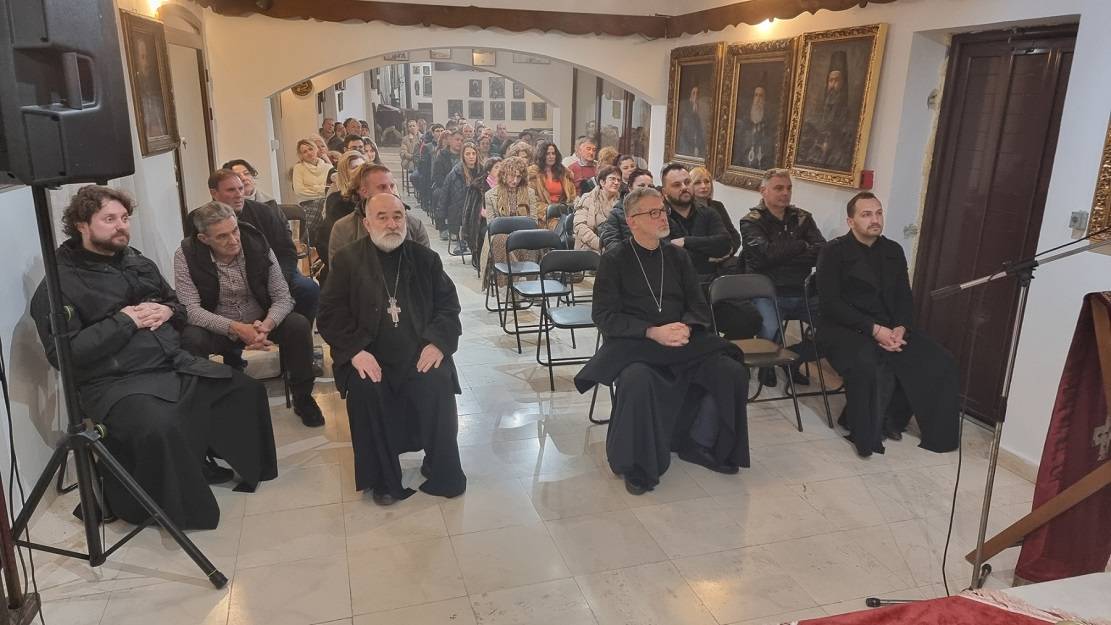

.png)